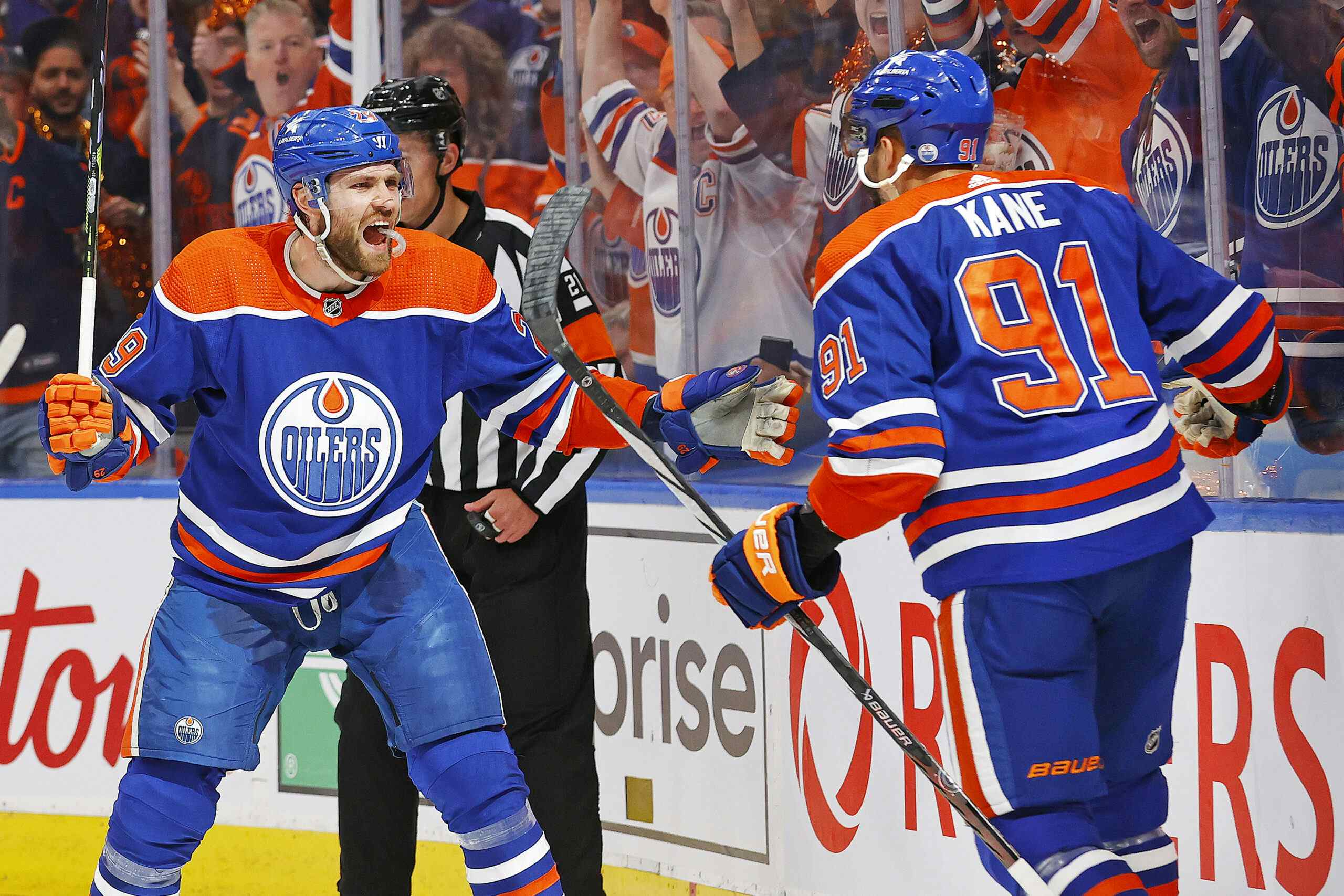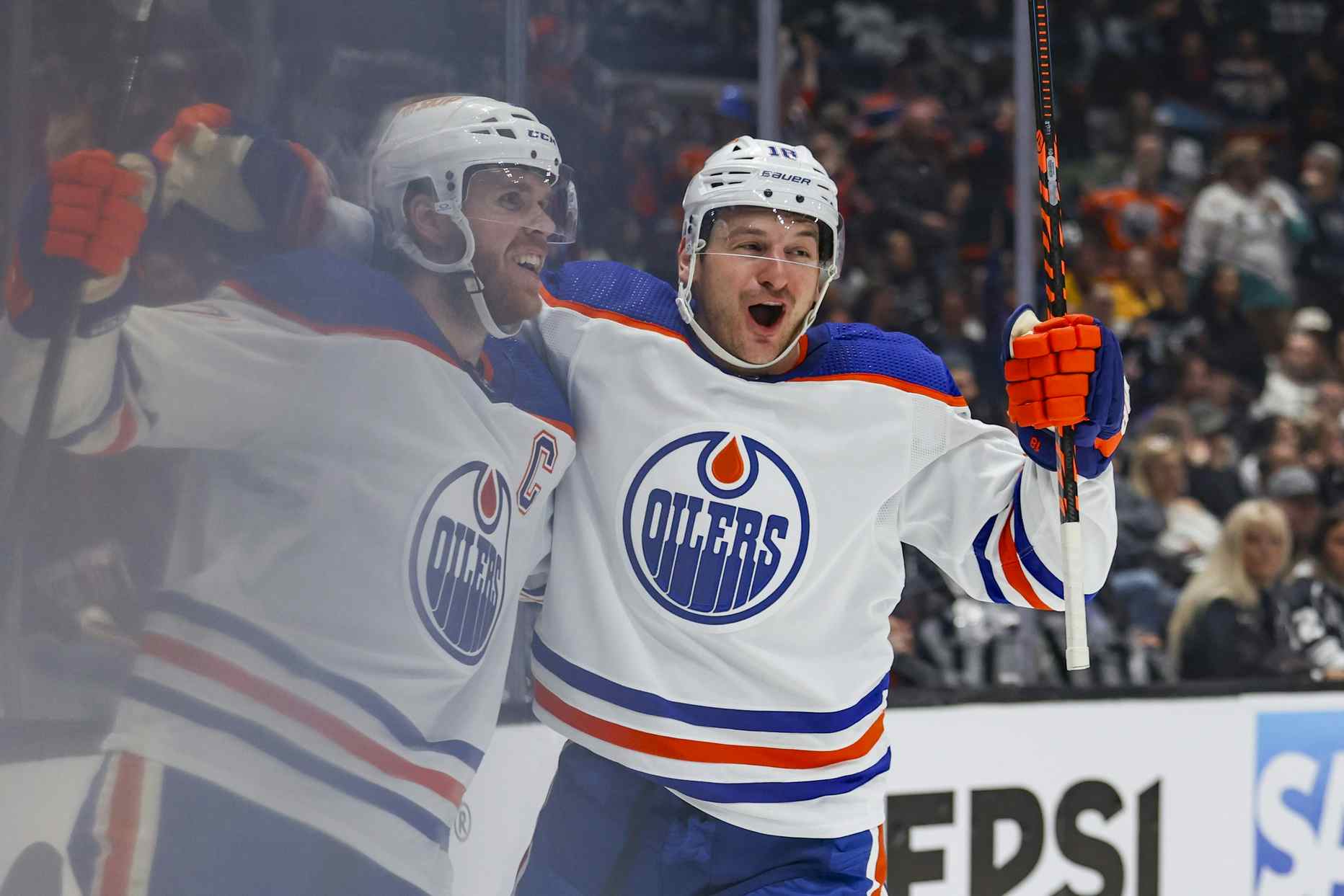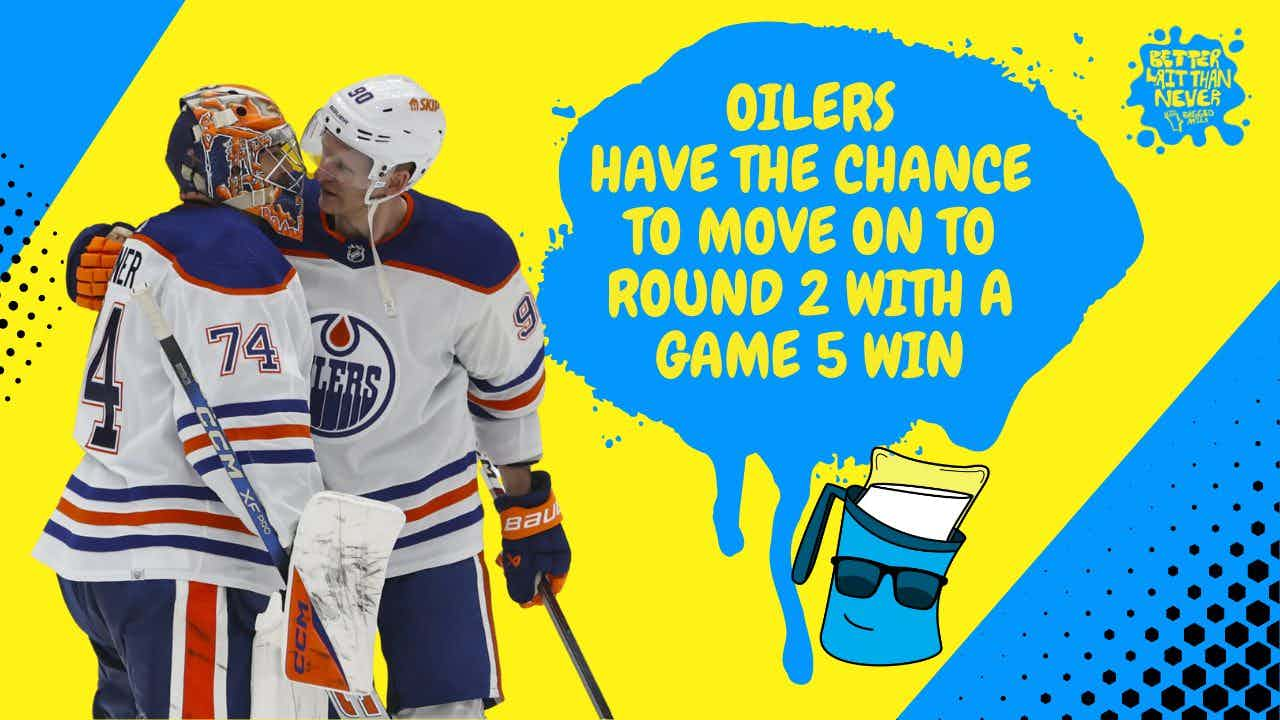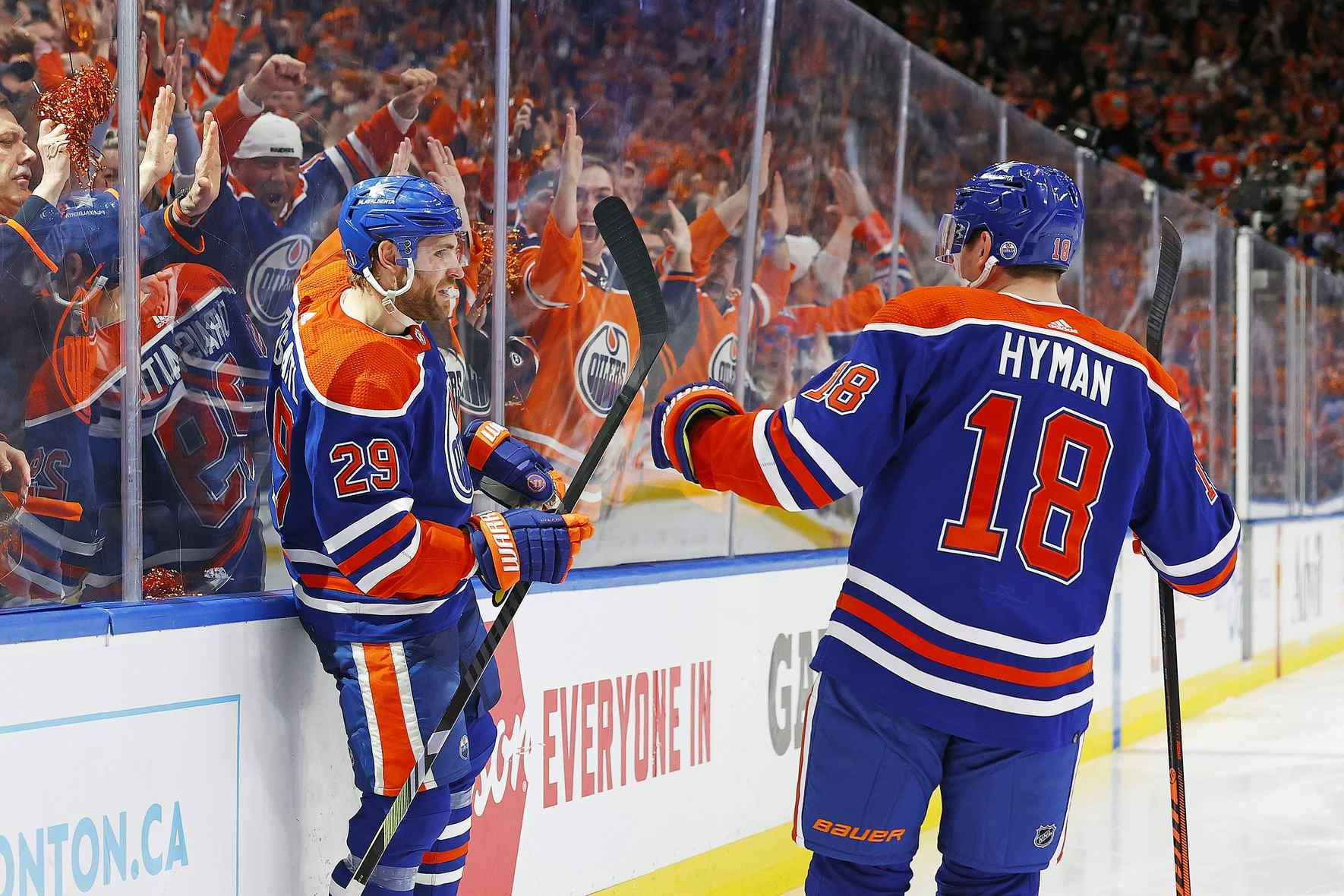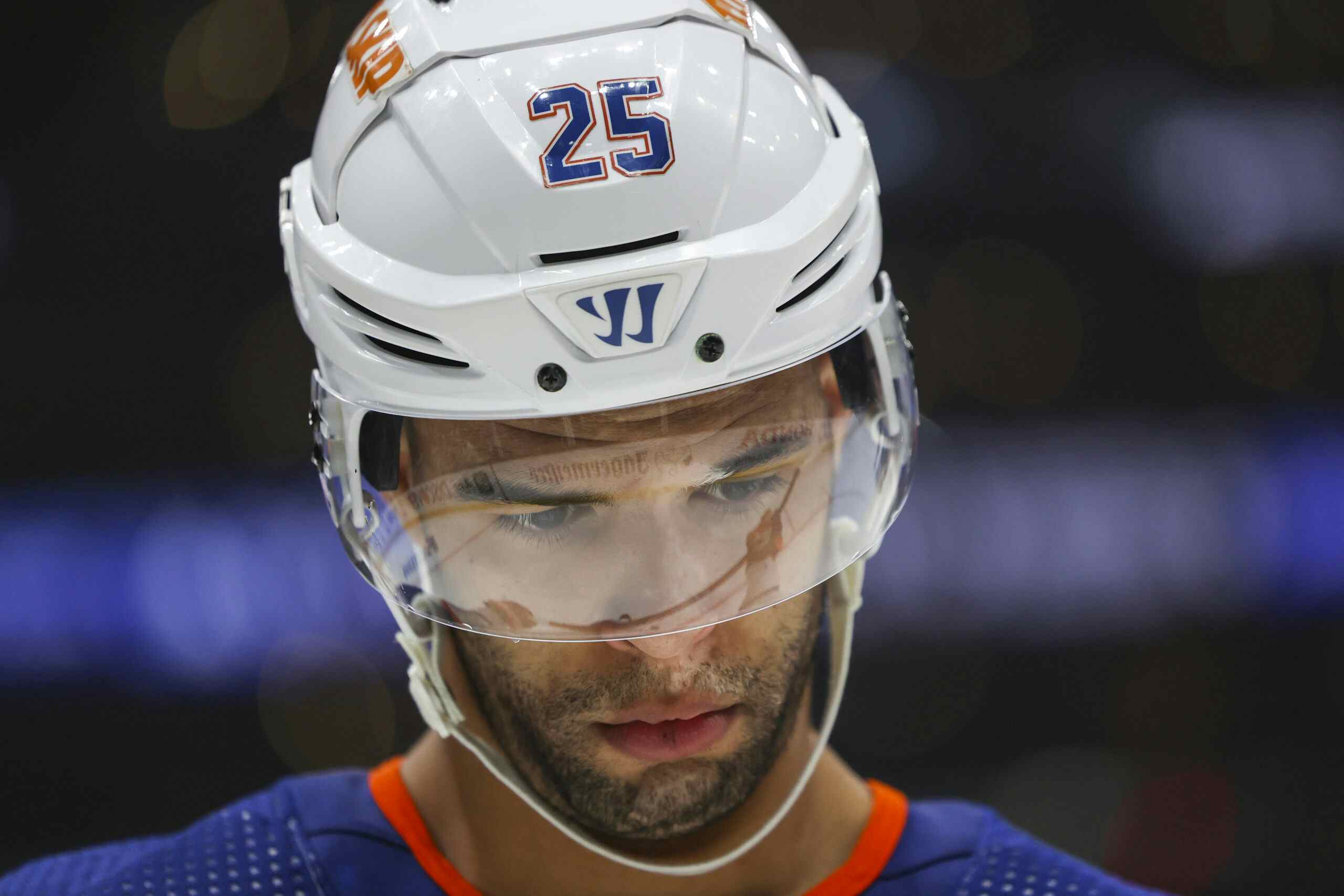Why I Could Care Less About (Goalie) Wins and Losses
I’m sure everyone here is sick of me preaching doom and gloom about the Oilers’ coming season. I’m equally sure that they’re sick of my rather pessimistic predictions about the Khabibulin contract. This article isn’t meant to continue those trends, but rather to make a general point that is inspired by one particular line of reasoning about Khabibulin: that he’s a winner.
It’s always seemed to me that a goaltender’s win-loss record is well beyond his control; it just makes sense. A logical extension of this is winning the Stanley Cup; since the goalie alone can’t determine wins and losses, it seems that winning and losing is a bad way of judging goaltender ability.
An extreme example of this occurred during the 2005-06 season. An NHL team had two goaltenders; goaltenders who had posted the following stats lines:
- Starter: 24-9-7, 2.29 GAA, .919 SV%
- Backup: 6-17-1, 3.00 GAA, .910 SV%
The backup obviously had poorer numbers, but that was still an exceptional save percentage. With this team out of a playoff spot, they elected to swap the backup to a competitor for draft picks; the fact that the backup was a pending free agent undoubtedly helped them to make that decision.
In any case, there were some serious doubts about the backup. Not only was his win/loss record shoddy, but despite being 36 years old he had but a single playoff round win to his name – and even there, his performance hadn’t been great (posting a .903 SV%).
The backup was Dwayne Roloson, of course, and here (in part) is what Tyler Dellow of mc79hockey.com had to say about the trade on the day it took place:
Now, from the Oilers perspective, they’re getting a guy who has just put up solid numbers for the last three years. I’ve included Roloson’s numbers in a table to the left. His relative save percentage has been outstanding for the past three seasons after a very mediocre start to his career-1019, 1024 and 1015. The last time I did the Oilers as a team, they were at 980-even if Roloson falls to league average, he’d be a significant improvement over what they were getting.Some of the dumber commentary I’ve seen on this (like the Wild’s press release, and every second comment on Calgarypuck), makes a big deal about Roloson’s record compared to Fernandez. His significantly higher goals against average has also been mentioned. I wouldn’t read too much into it. Roloson has, for some reason, had the Wild play significantly worse in front of him. On my numbers, the expected even strength goals against per 60 (based on shot volume, distance and whether or not it was a rebound) for the Wild when Roloson was in net was 3.07; when Fernandez was in net, it was 2.63. That’s a pretty significant difference. The Roloson figure of 3.07 (which is designed to reflect the team in front of him as opposed to the goalie) is a worse figure than that put up by every team except Atlanta, the Islanders and the Penguins this sesaon. I’m not so sure that he’s had the Wild’s usual stellar play in front of him in games he’s played this season. I don’t generally pay attention to wins as a goalie stat but I’d assume that the Wild have given better offensive support to Fernandez.
Much has been made of Roloson playing for the Wild and the idea that he’s just putting up numbers playing behind a stifling defence. I’m not sure what to make of this myself-while it’s true that he put up worse than league average numbers prior to the last three years, he was consistently excellent in the minors and spent much of his NHL time playing for teams that weren’t particularly good defensively. As I noted, there are indications that they haven’t played particularly well in front of him this season and he’s still put up good numbers.Comparing him to the trio we’ve been using all year, I have him as being 3 goals below his expected goals against at even strength this year, again, with expected goals against being determined by shot volume, rebounds and distance. He’s faced 536 ES shots as of my last update. That’s a hell of a lot better than the guys that the Oilers have been using-as of my last update, Jussi was -15 on 633 shots, Ty was -5 on 198 shots and Morrison was -3 on 248 shots. This indicates to me that Roloson has been significantly better this season than the guys he’ll be replacing.My conclusion is that if he puts up the save percentage he has so far this season for the remaining 20 games and we assume he plays 80% of the games, I figure he makes the Oilers 12 goals better. That’s a ridiculously huge number, worth in the neighborhood of 4 points in the standings.
That’s a long quote, but it’s worth reading. It’s also illuminating because Tyler (even more so than me) has been accused of having a consistently pessimistic view of the Oilers. That isn’t true; he’s consistently judged goaltenders by the available market and by their save percentage over the past few seasons in relation to the rest of the league.
The same things that made Roloson appealing in 2005-06 are what he’s using to judge goaltenders now. As we saw, save percentage worked well then and I think it will continue to work well in the future. Honestly, a goaltender’s win/loss record – even a goaltender’s playoff record – holds very little weight with me if he’s been sub-par save percentage-wise.
Chris Osgood is, in many ways, the perfect example of this. People who watch the numbers agree with people who watch the games: he’s a fairly average tender playing for a great team. However, he’s won enough Stanley Cups that there’s now almost a ‘Cult of Osgood’; he was considered a leading candidate for the Conn Smythe trophy in the event of a Wings victory, and people talk about how he turns it on for the playoffs.
I just don’t buy it. He’s played well (not great, but well) behind a phenomenal team, but he isn’t one of the better goaltenders in the NHL.
In any case, the point here isn’t to bash Khabibulin (who had a remarkably good save percentage last season) but just to point out that winning and losing is beyond a goaltender’s control – and it’s wrong to judge him (for good or ill) based on the number of wins or losses he’s picked up along the way.
Final point: the NHL record for most losses is currently a record held by two goaltenders. Curtis Joseph is one of them, and the other is one Gump Worsley. Worsley owns the rather pedestrian career record of 335-352-150, along with a couple of other things (four Stanley Cup rings, two Vezina trophies). I realize I’m being as subtle as a sledgehammer here, but looking at the win/loss record alone tells you virtually nothing about a goaltender.
Recent articles from Jonathan Willis

